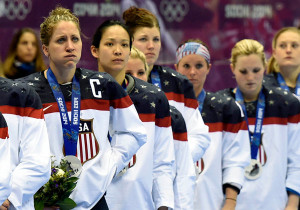Both of these teams won medals at the most celebrated winter sports competition in the world. Team USA won a silver medal and Team France won a bronze, and yet their responses couldn’t be more different.
One team is celebrating a win and the other is contemplating a loss, and yet the team contemplating the loss won the more prestigious medal. The fact is that both teams won (they both won a medal) but Team USA believed that they had lost because they didn’t get the gold medal they had hoped for.
In the very beginning the Olympic games were never about winning or losing. They were originally created by the Greeks to bring athletes together so they could compete with each other in order to achieve their best results. The word competition is a derivative of the Latin word ‘Competere’. Com means ‘together’ and petere means ‘to seek or strive’. The original athletes in the games strove together to be their best. There were no winners or losers.
Our culture creates the premise that in order for someone to win, someone else has to lose. That premise carries over from the Olympics into our everyday lives and we use the winner/loser language freely.
We strive to win a promotion, win a contract or win recognition for something we deem valuable or important in our lives and when we ‘win’ the rewards are obvious. When we ‘lose’ it’s harder to swallow.
It’s hard to train for years for the Olympic games only to miss the gold by one puck that hit the post of an empty hockey net, or to miss an Olympic medal by a mere 1/100th of a second. It is no less challenging to lose a promotion to someone who has less experience than you or to lose a love to someone else.
To strive to be the best that you can be in all that you do and all that you are is incredibly important, but learning how to deal with loss is probably more valuable to our overall well being.
Perfection is not a constant and that, if it were, life would be dull and spiritless. If we were all perfect then there would be nothing to strive for because it is our imperfection that offers us the opportunity to grow and to learn. The lesson is to embrace our imperfection and welcome it as driving force in our lives so that we can strive to be better.
For the Olympic athletes who ‘lost’ by 1/100th of a second, for the US Women’s Hockey Team who ‘lost’ the gold; they all won so much more. It was simply that, at that very moment in time, they couldn’t quite accomplish what they dreamed of, even though they gave it everything they could.
If they can take that experience and use it as a beneficial learning, then perhaps the next challenge they face will bring them closer to their personal perfection.
Not perfect, but closer to perfect.
Let’s just call it perfect imperfection.

